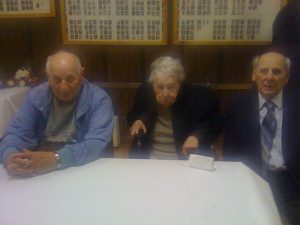In February of this year I started the Justice Chronicles, and talked about it in a religious context. Now I wish to talk about it in terms of how we govern ourselves. Hard to imagine an issue that is more polarizing than religion, but this may be it.
When someone in the government talks about justice it’s virtually always in the context of law enforcement: Protect me from the bad people and get rid of them if you can’t protect me. But it seems to me that justice ought to be much more. When we talk about justice in the public forum, why can’t we see it in the context of what we value as a society?
When I did marriage preparation I used to say this to the couple: Show me your checkbook and the last several months of your credit card statements and I’ll tell you what you really value. In other words, if I know where your money goes, I know what you think is important. We can use the same thing when we look at the budgets of the nation, state, and locality. You can look on a page at Wikipedia to see a pie chart of the 2010 US Federal Budget. The top categories are Social Security (19.63%), Department of Defense (18.74%), Unemployment/Welfare/Other Mandatory Spending (16.13%), and Medicare (12.79%).
So how are we doing? At first blush, not bad. Nearly 3/4 of the federal budget (73.24%) are these four categories, and three of them (Social Security, Unemployment, and Medicare) provide direct services to people in need: the elderly, the poor, and the sick. The other category protects us from outside forces that wish us ill.
But on the other hand, you can see how these four categories are weighted toward those who can advocate for themselves. I’m headed toward the Social Security/Medicare population at what seems like light speed, but it’s also true that the elderly vote in large numbers. They are essentially the exclusive recipients of Social Security and Medicare.
In 1961, in his farewell address, Dwight D. Eisenhower warned of the emergence of the Military Industrial Complex. He was, in this case, a prophet. No one, myself included, begrudges the brave men and women in uniform whatever they need to stay safe and come home. But the past 50 years we have been littered with stories of the military denouncing a weapons system, a jet, or a missile as unnecessary only to be overruled by a member of Congress who doesn’t want to lose the federal funds to pay for a factory in his/her district. We are owed efficiency from the Department of Defense every bit as much as the Department of Health and Human Services.
Finally, and this is my most salient point, is the status of our children in the federal budget. Where do we find them? Well, 8.19% of the budget is devoted to Medicaid and the State Children’s Health Insurance Program. Medicaid was designed in the 1960s as health insurance for the poorest among us. It is certainly that, but it is not necessarily weighted toward children. The fastest growing segment are elderly folk who need someone to pay for their stay in a skilled nursing facility (also known as a SNF or a nursing home).
Children, alas, are often looked at as an expense for the rest of us. That’s wrong. We need to look at our children (and I’m speaking globally as I have no children myself) not as an expense, but as the ultimate investment in our future. Study after study has shown that the more resources we give our children, the better off our society will be. But year after year we find that our schools are grossly underfunded, the people who care for our children the worst paid, and we don’t want to invest anything in children we don’t like (e.g. those who were born in other countries and came to the U.S. to contribute to an economy that will provide a sustainable standard of living). One of the charities I support, that you can find on the left side of this page, is Donor’s Choice. It’s a site where you can contribute directly to schools and classrooms who have needs that aren’t covered by their local school districts. I’m grateful for the opportunity to help, but I’m angry that these teachers need to go begging. Take a look and don’t be shocked by what you see.
Finally, the worst way we fail our children lies in the way we care for their health. Seniors, virtually all of them, have universal health care. If you are 62 or over and are here legally you are virtually guaranteed that you will be taken care of. Until then you’re pretty much on your own. If you’re a child and your parents are either wealthy, middle class, or destitute, you’re in good shape (either because your parents can afford health insurance or because you’re eligible for Medicaid). If your parents are working poor, or if they are employed by a company that does not provide health insurance, you’re pretty much counting on not getting sick. Your primary health provider is the emergency room where your parents are presented with a bill they can’t pay. If that happens everyone loses: the hospital doesn’t get their money and your parents file for bankruptcy because they can’t hope to pay the bill.
And there’s more. Here in San Diego we don’t have enough money to staff all of our fire stations and that has led to a policy of not staffing certain stations at certain times (called a “brown out”). Last Tuesday Station 44 in nearby Mira Mesa was out of service. When there was a call in that neighborhood, Station 38 responded. That was fine, until the family of 2 year old Bentley Do called 911 because Bentley was chocking on a gumball. The Do family lives a block away from Station 38. Because Station 38 was responding to a call that Station 44 should have taken care of, there was no station available to care for Bentley. When a station from farther away finally responded, it was too late. Two year old Bentley Do died.
There is a ballot measure in November that will raise the sales tax in San Diego by 0.5% (if you spend $100 on taxable items, your tax will increase by 50 cents). Fire and police protection will directly benefit from this. Yesterday the San Diego Union Tribune carried this letter to the editor from J.R. Bolger of Tierrasanta:
The death of young Bentley Do is cause for every San Diegan to grieve for and with his family. But my grief turns to outrage when your paper and its ilk use this tragic accident as a campaign issue in a drive to pass a sales tax increase! Your front-page headline (“Tragedy renews sales-tax debate” July 23) is yellow journalism at its finest and William Randolf Hearst must be smiling down on you.
It’s hard to live in San Diego and care about children. I pray that the family of Bentley Do is heartened by the fact that if this tax increase fails, Mr. Bolger of Tierrasanta won’t have to pay an extra 50 cents on a $100 purchase.
This just in: As I was writing this post the San Diego City Council decided not to pass the sales tax resolution. It’s a good day if you don’t want to spend the 50 cents, and a bad day if you need emergency services.



